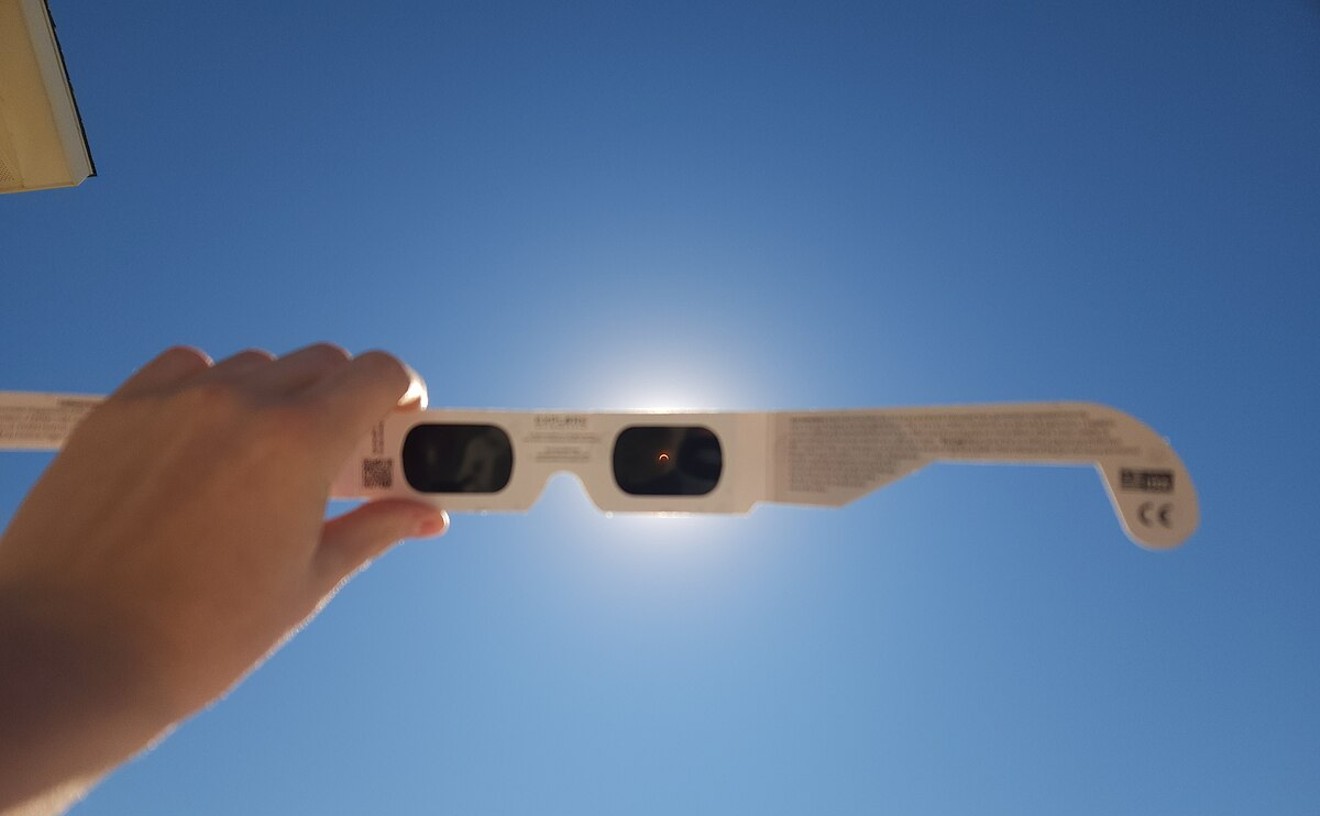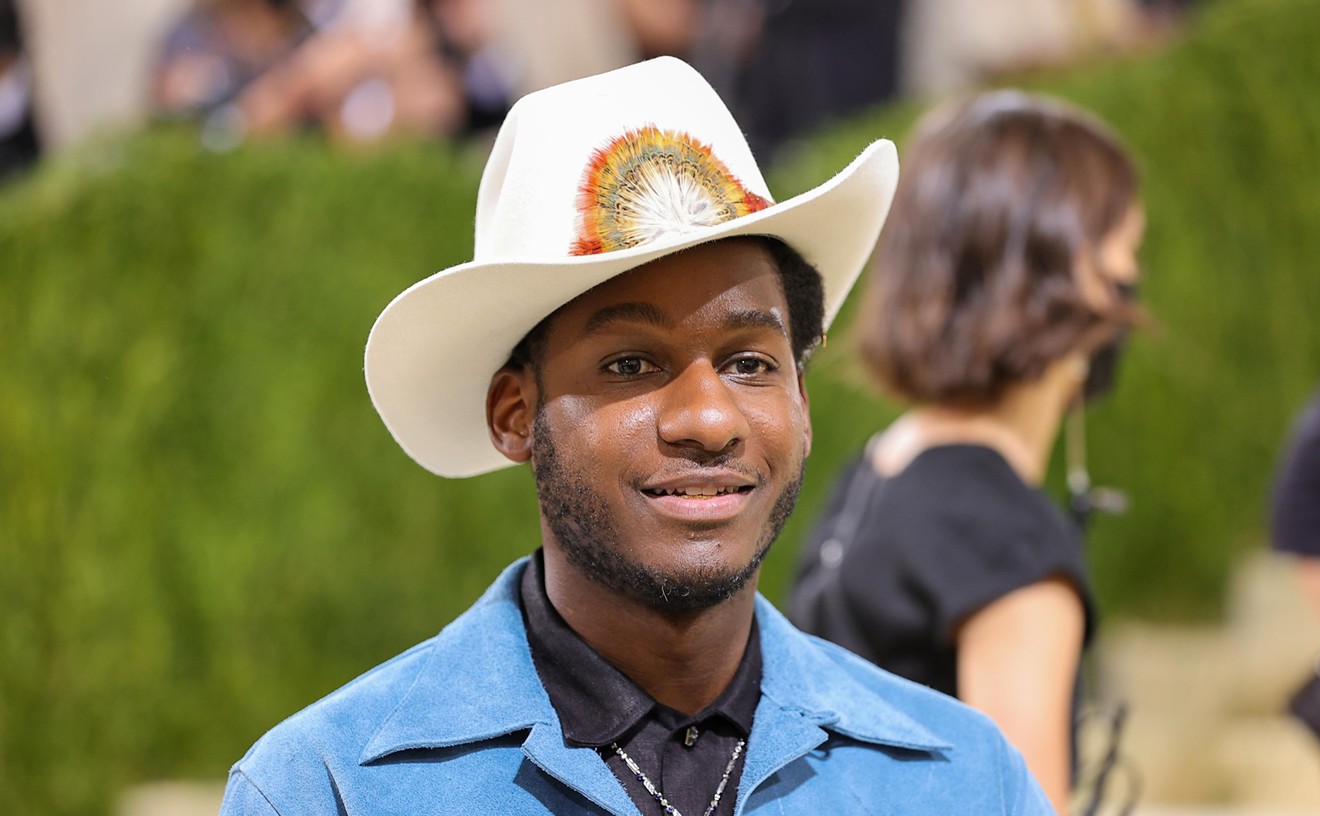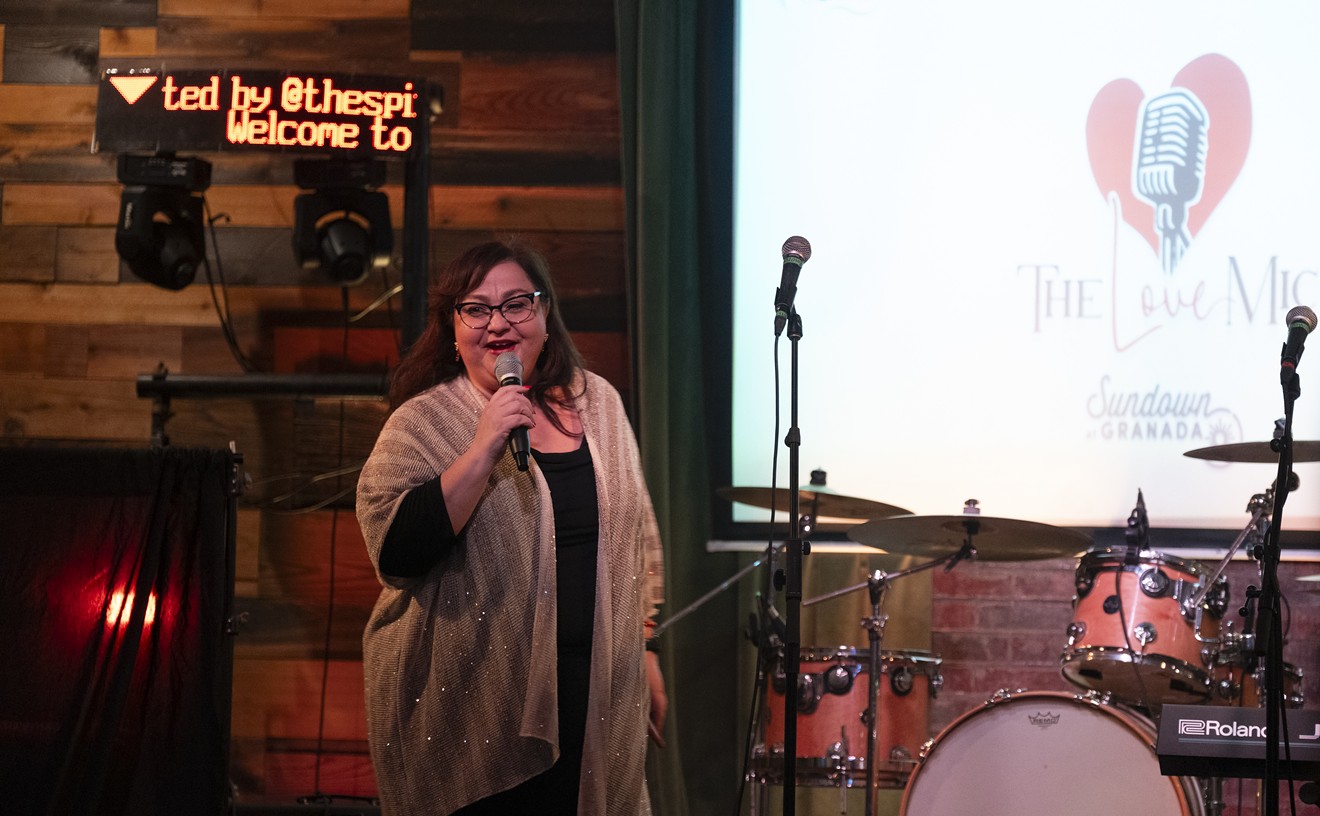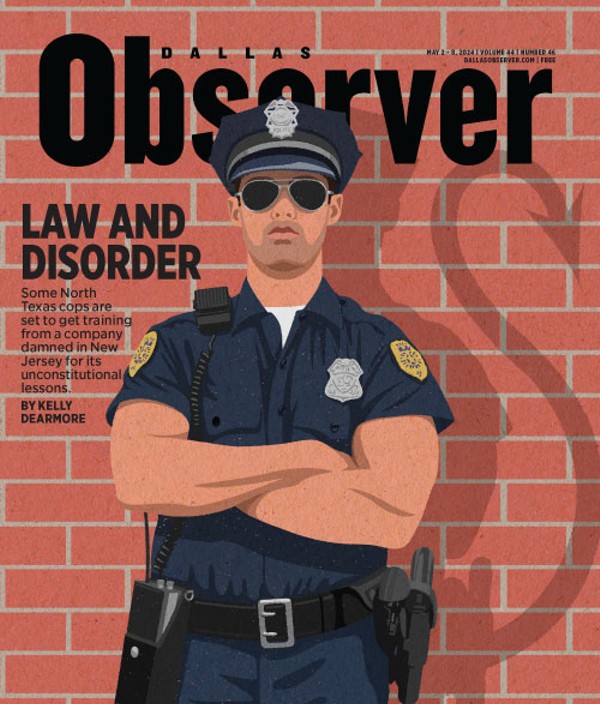Casting gifted singers gives extra heft to a funny but flimsy piece that otherwise would play like a long episode of My Name Is Earl. A hit at the New York Musical Theatre Festival, the show, getting its local premiere at WaterTower, pokes a sharp stick at all things white trash, namely the tacky denizens of a rundown "manufactured housing community" called Armadillo Acres.
Narrating all the goings-on are the cracker Greek chorus of Betty (Shelby-Martin), Pickles (Kelly) and Lin (Serber). Betty's the park manager and knows everybody's bidness. Pickles is a redheaded dilly who suffers hysterical pregnancies and waddles around in cutoff overalls. Lin's whole first name is "Linoleum," she tells us, "because my mama gave birth to me on the kitchen floor."
Trussed up in tube tops, blue eye shadow and hairdos crimped to a fine frizz, the ladies outline in song and story the rules of living in their little corner of Starke, Florida. No. 1: "Entertainment ain't entertainment unless it takes place on ice." No. 2: "Don't marry your cousin without a pre-nup." No. 3: "Knickknacks is what make a trailer a home."
Yep, there's a lot of that sort of dumb hardy-har in TGATPM and a lot more that's dirtier and funnier. "Rendezvous," explains Lin, pronouncing the "Z," "is French for fuckin'."
With music and lyrics by David Nehls and book by Betsy Kelso, the show reeks with redneck humor but offers just a sniff of a plot. In one trailer, you've got Jeannie (Breckenridge) and Norbert Garstecki (Jim Johnson), suffering the 20-year itch and still wondering, but not too often, who kidnapped their baby son in 1983. Jeannie's an agoraphobe who won't dip a toe outside the double-wide. Norbert's a toll collector who's getting his ticket punched regularly by new neighbor Pippi the stripper (Oristano), who's hiding out from her Marvy-Marker-sniffing boyfriend Duke (Andy Baldwin). What else could Pippi sing as her personal anthem but a little ditty called "The Buck Stops Here"? And she belts it while swinging on a pole and tickling her ponytail with the backs of her knees.
Bedraggled Jeannie can't compete with limber Pippi. Jeannie sings: "Just like clothes from Wal-Mart, my love life's falling apart/And it cuts like a Ginsu knife lodged in my heart." References to Pringles, Jerry Springer, Joan Rivers and her QVC jewels, Judith Light and Lifetime movies define the cultural road map these characters traverse.
Calling it lowbrow puts too high a gloss on The Great American Trailer Park Musical. But dang, there are some stomp-the-floor laughs, thanks to the great cast. Serber's comic timing is sharper than those Ginsus. Johnson's Norbert is a lovable lug who sings in a Gomer-esque baritone. Breckenridge, a fine actress and singer, creates a Jeannie who's so pathetically downtrodden, we pray she'll conquer her phobias and make it to the Ice Capades.
Everybody has good moments, but Andy Baldwin blows the other actors off the stage with his jangled, huffed-up performance as Duke. He's the best no-account hick since Ernest T. Bass.
Don't Rock the Jukebox is a nice little show that doesn't know when to stop. Playing for a few more performances at the John Anthony Theatre at Collin County Community College, it's a jukebox musical with a gimmick, letting the audience plug in virtual quarters (via infrared voting devices at each seat) to pick which 30 of about 90 songs the cast of 18 will perform.
The idea came from Mark Mullino, one of Dallas theater's most in-demand musical directors, and Brad Baker, head of the college's theater division. Familiar standards, hymns and pop songs are loosely spun together with a slim storyline about a shy girl named Wendy (Rebekah Prim) who inherits an old jukebox from her uncle (Dane Hoffman)—he talks to her on video, but that's too complicated to explain—and learns from it the history of American pop culture.
As Uncle Lee waxes on about the origin of boy bands, the audience sees song titles flash overhead. Everyone hits voting buttons. Within seconds, Mullino's onstage combo is cued which song theatergoers have picked and the young singers rush out to do a number by Frankie Valli and the Four Seasons or The Crew Cuts. It's a different show every night, depending on audience whims. Can't imagine the backstage havoc.
They might be working too hard. The show's 45 minutes too long, featuring four possible finales, including a rapturous "Purple Rain" sung by Matthew Johnson at the end of the first act. Around 10:20 p.m., a group of five delivers *NSYNC's "Bye Bye Bye," a natural place to stop. But no, there are three more numbers to come, including a "Bridge Over Troubled Water" that's longer than the Verrazano-Narrows.
Heavy editing would help Don't Rock the Jukebox, as would stronger actors as Wendy and her uncle. Quad C's ensemble features some vocal standouts—local cabaret chanteuse Amy Stevenson comes out for a cameo that shows the young ones how it's done—but the two leads are as stiff as the cardboard on old album covers.
Lately Theatre Three has been taking baby steps toward better productions. In January director René Moreno and a terrific cast made Michael Frayn's smart political drama Democracy absolutely gripping. Now, however, it's a giant leap back to the old T3 hokum with Talking Pictures, a Horton Foote work so quaint and homespun you could wear it as an apron.
Set in the summer before the 1929 stock market crash, the play depicts small-town Texans as racist, misogynistic boobs masquerading as the Waltons. Director Kerry Cole and her cast operate under the misguided notion that Talking Pictures is rosy-tinted nostalgia for a simpler era. But get real. In this play, blacks, whites and Latinos attend segregated schools and churches, and divorced women are regarded as floozies by good Christians. There's talk of "colored people." A "mixed marriage" means a Baptist married to a Methodist. Yeah, good times, and don't you miss the lynchings and Klan rallies?
Foote, author of The Trip to Bountiful, cranks out this sort of old-coot twaddle and passes it off as American lore. In Talking Pictures, his theme is impending change. Main character Myra (Renee Krapff) plays piano at the silent movie house. Talkies will eliminate her job. She rents a room from a railroad engineer (Vince Davis) about to be made redundant by the decline of passenger trains. His wife (Wendy Welch) won't permit radio-listening on Sundays, and she gets flustered when teenage daughter Katie Bell (Emily Jackson) talks to Estaquio (Michael Mandrinkian), son of a Mexican minister.
Not one moment rings true, partly the fault of Foote—characters enter and exit constantly and for no logical reasons—and partly the cast's. Such gesticulating, squealing and overemoting. With a voice so grating it could etch limestone, Emily Jackson further annoys by upstaging fellow actors at every turn. Derik Webb, playing a lovesick bricklayer returning home after a hot day's work, skips over the stage like a fairy headed for the bottom of a garden. Or the bottom of a gardener. As his girlfriend, pianist Myra, Krapff hits one note and holds it for two hours.
Actress Jody Rudman gets much-craved yuks when she pops up late in the action. Foote's women are either madonnas or whores. Her Gladys is the latter, a tart trying to land a rich man before she loses her looks.
Speaking of looks, will someone stage an intervention and stop costumer Michael Robinson before he strikes again? The clothes in Talking Pictures bear all his hallmarks: cheap fabrics, uneven hems, unflattering silhouettes, wrong shoes and clashing colors (he puts Rudman in a pink and black dress with mustard-yellow hat). No woman in Texas, no matter how prudish, would don a heavy flannel robe over a nightgown in July. No men in 1929 wore hair over their ears or collars unless they were hobos. And no laborer, even a skipping one, would don cowboy boots to lay brick. Details like these are distracting, but noting them did provide something to do during a rotten show.










